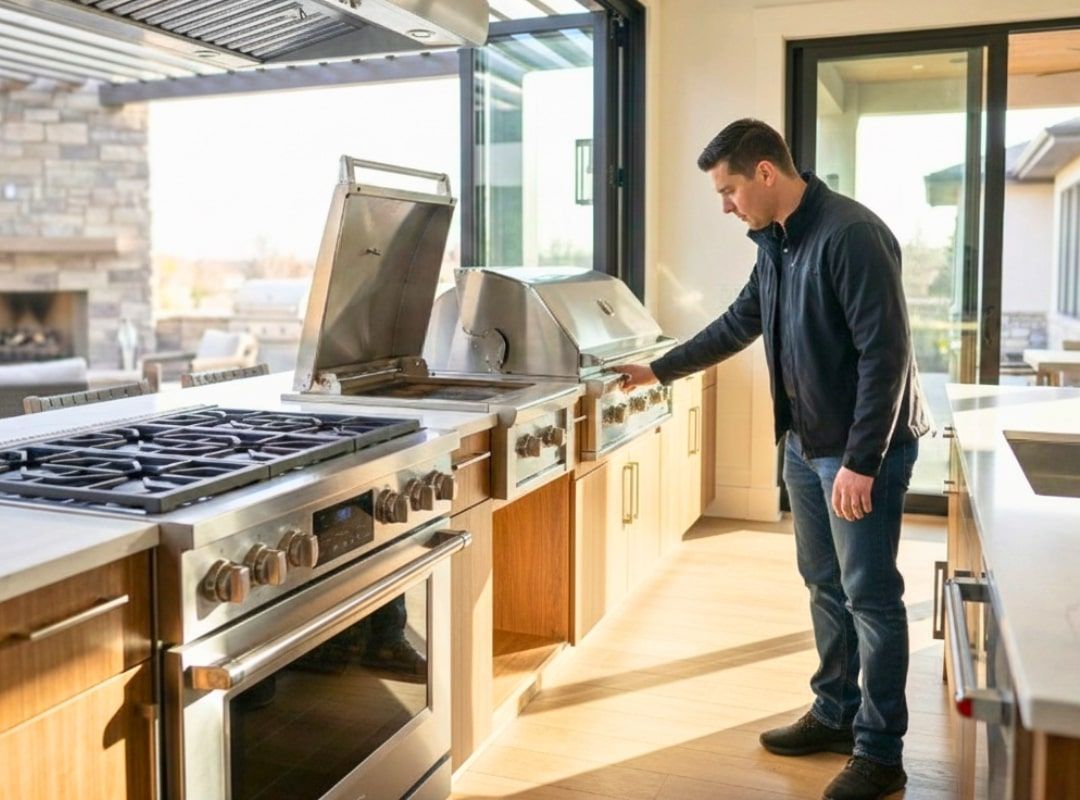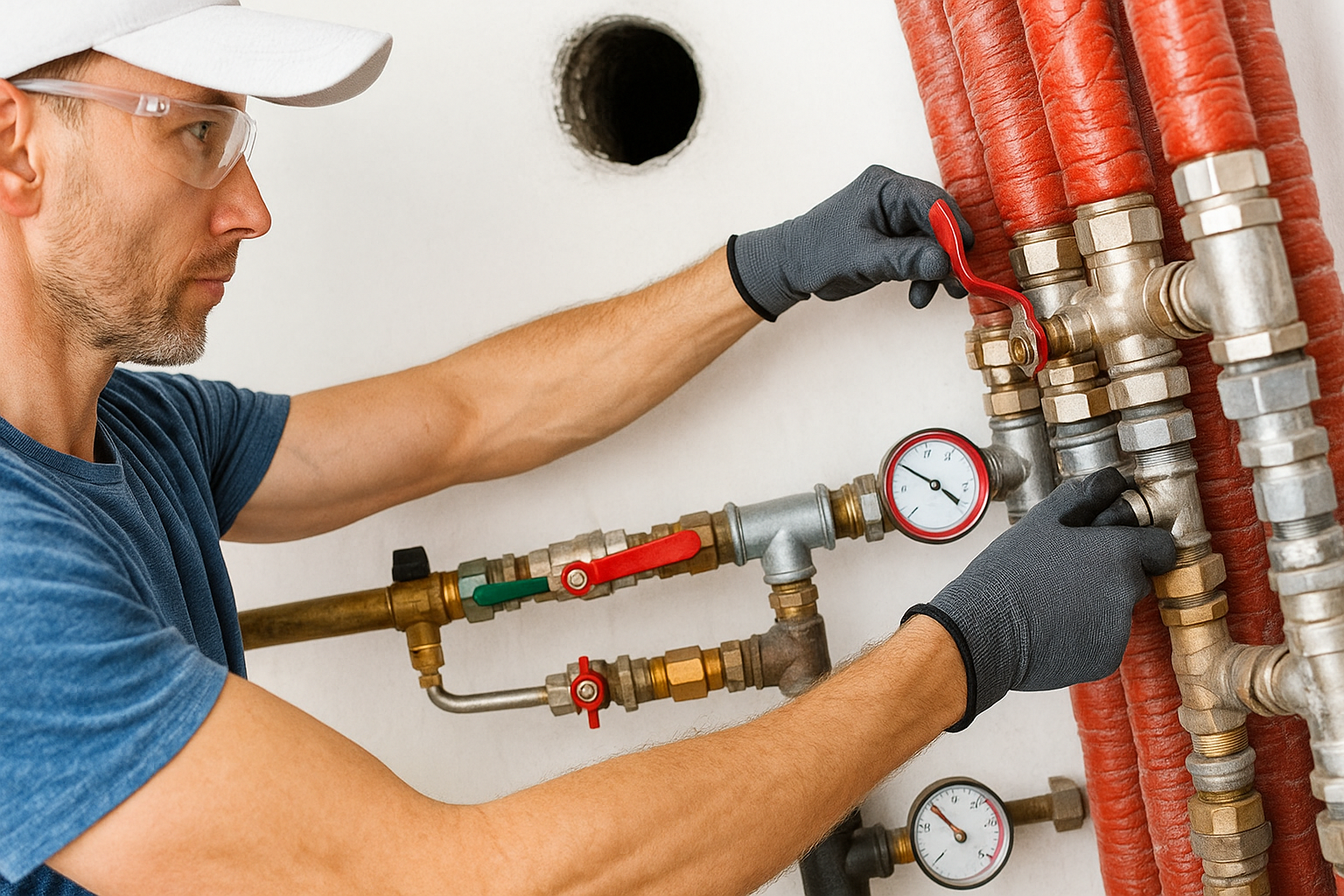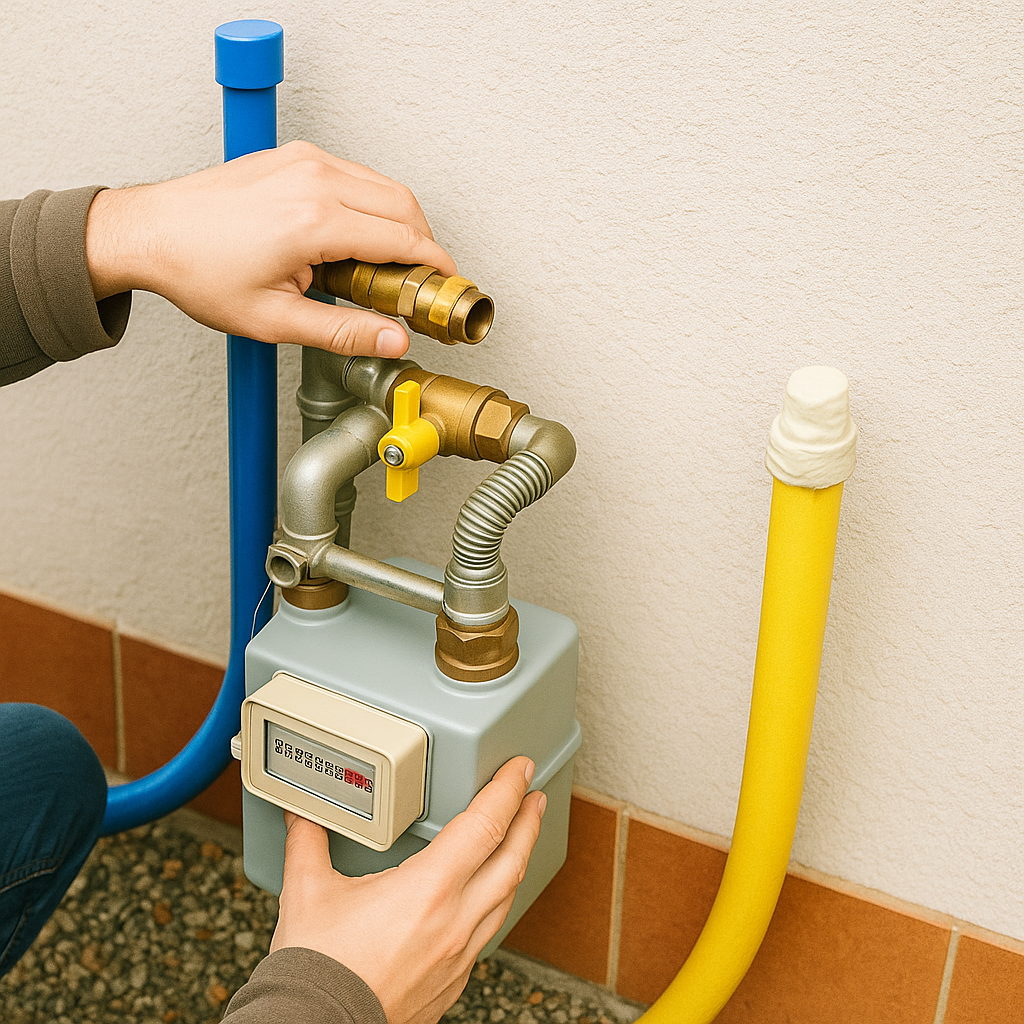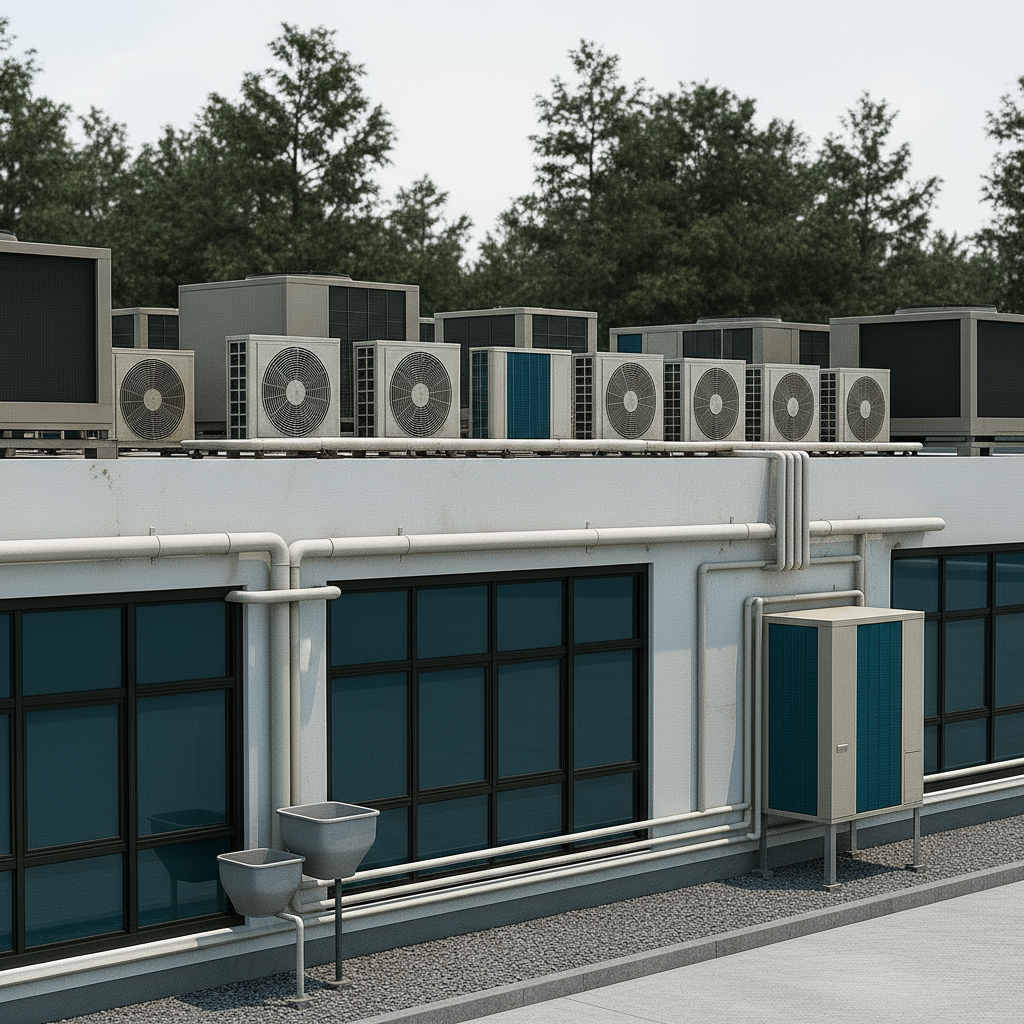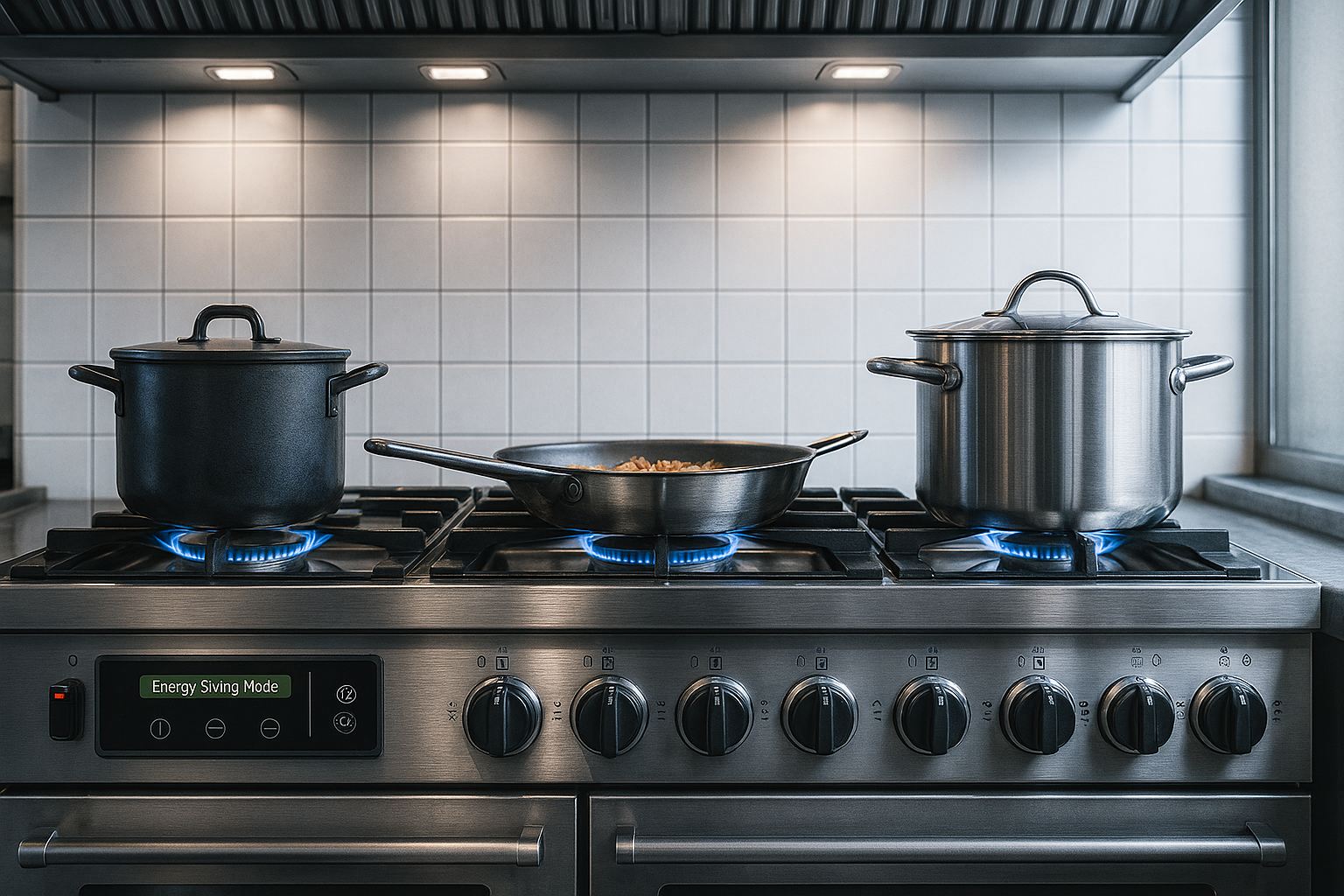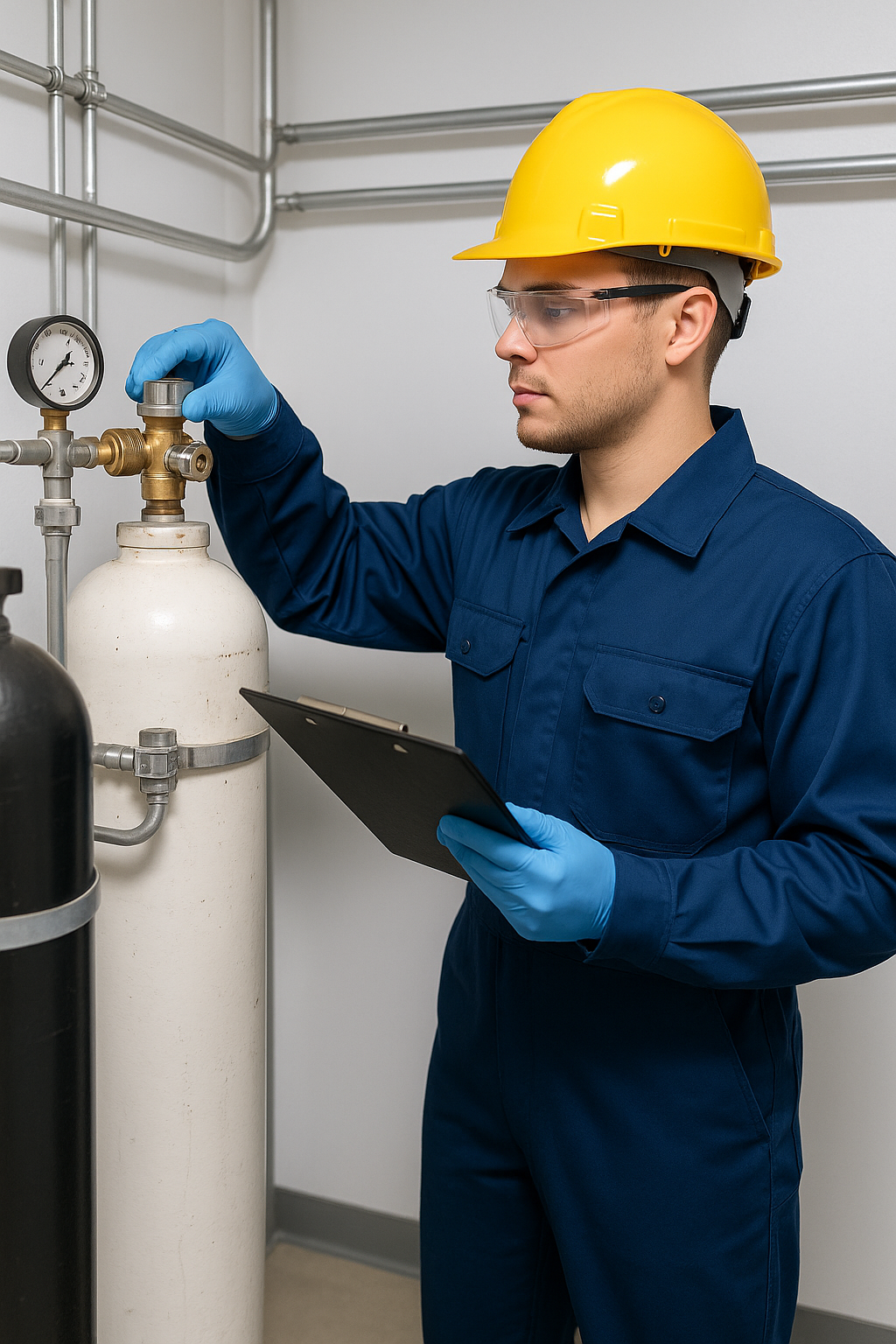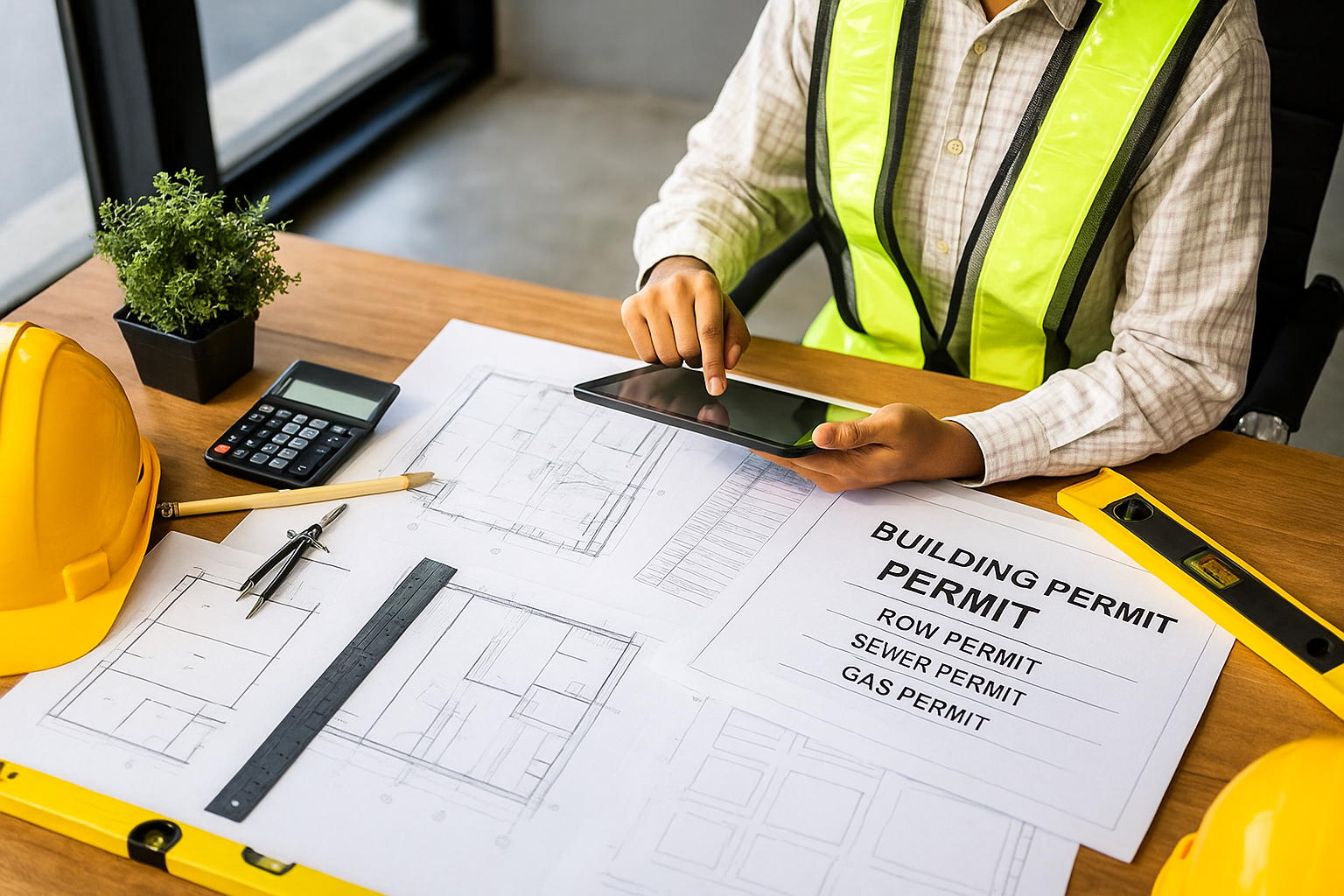How to Tell If Your Gas Line Needs to Be Replaced — Before It’s Too Late
TLDR;
You need to replace your gas line if you notice corrosion, a persistent rotten egg smell, hissing sounds, dead vegetation near the line, or appliances performing poorly. These are signs of leaks or aging pipes that can turn dangerous fast. Call
NOVA Gas for inspection and professional replacement before a small issue becomes an emergency.
Why Gas Line Replacement Matters for Safety and Long-Term Performance

Your gas line delivers fuel safely to your appliances. Over time, exposure to moisture, shifting soil, and wear on older materials cause leaks or corrosion. Many Virginia homes still have steel or black iron pipes that degrade faster. A compromised line is not only inefficient but dangerous, raising risks of explosion or carbon monoxide exposure.
Aging infrastructure, local climate, and soil composition in Virginia accelerate pipe wear. Recognizing the signs early helps you avoid property damage, health hazards, and costly repairs.
Why Gas Lines Need Replacement Instead of Constant Repair
Most gas lines last between 20 and 50 years depending on material and environment. Older pipes or those repeatedly patched often reach a point where replacement is more practical than repair.
Replacement is usually necessary when:
- Pipes are corroded or rusted throughout.
- Frequent
leaks or repairs indicate systemic failure.
- The gas line materials no longer meet Virginia building code standards.
- Pressure or flow problems persist despite repairs.
Replacing a gas line ensures full compliance with modern safety codes and helps prevent recurring leaks that repair jobs can’t solve. NOVA Gas professionals evaluate pipe material, soil conditions, and age before advising replacement.
Top Warning Signs You Need Gas Line Replacement

Rotten Egg Smell Means Gas Leak
If you smell sulfur or rotten eggs, leave the area and call a professional immediately. Utility companies add a compound called mercaptan to natural gas to help detect leaks — one of the most common
natural gas leak warning signs homeowners should never ignore. Even faint odors mean gas is escaping somewhere along the line.
Hissing or Whistling Sounds
A steady hissing near pipes or appliances indicates pressurized gas escaping through a crack or hole. Do not attempt to locate the leak yourself. Call NOVA Gas for emergency assistance.
Visible Rust, Corrosion, or Cracks on Pipes
Inspect any exposed lines near water heaters or outdoor connections. Rusted or discolored metal means the pipe’s integrity is compromised. Corrosion often begins at joints and spreads quickly.
Dead or Dying Vegetation Above Underground Lines
Gas leaks kill plants by displacing oxygen in the soil. If you see a line of dead grass or wilting vegetation where the gas line runs, you likely have an underground leak.
Rising Gas Bills Without Added Usage
An unexplained increase in your monthly bill often signals a leak. Escaping gas wastes energy even when appliances remain off.
Appliances Performing Poorly or Flames Changing Color
Weak flames on stoves or furnaces indicate poor gas flow. A normal flame burns blue. Yellow or flickering flames mean incomplete combustion and possible gas line issues.
Frequent Repairs and Aging Infrastructure
If your line requires repair multiple times a year, replacement is the safer long-term solution. Pipes made from outdated materials like galvanized steel deteriorate faster.
When and How to Inspect Your Gas Line for Early Warning Signs

Safety Comes First
If you suspect a leak, shut off the gas supply, leave the building, and call your gas company or 911. Do not use electrical switches or open flames.
Simple Checks You Can Do Safely
- Examine visible sections for rust, cracks, or flaking.
- Listen for hissing around joints and appliance connections.
- Watch for bubbling water in puddles over buried lines.
- Track changes in appliance flame color or strength.
- Compare monthly gas bills for unexplained increases.
Professional Gas Line Inspection
NOVA Gas recommends a full inspection every few years, or immediately if you suspect a problem. Licensed technicians use specialized leak detection tools to locate leaks and test pressure. They also check code compliance and material integrity.
Gas Line Replacement vs. Repair: Which Is the Right Move

Repair works for isolated issues such as minor leaks or joint problems in newer pipes.
Replacement is advised when:
- The line is over 30 years old.
- There is widespread corrosion or multiple leaks.
- The existing material no longer meets current code.
- Repairs become too frequent or costly.
Replacing a gas line provides peace of mind and ensures your system meets modern efficiency and safety standards. NOVA Gas uses updated materials and techniques that extend the lifespan of your system.
Modern Gas Line Replacement Methods

Traditional replacement involves digging trenches to expose the old line. Modern trenchless pipe replacement allows technicians to replace pipes with minimal excavation. This reduces disruption, preserves landscaping, and shortens project time.
Common replacement materials include:
- Polyethylene (PE) for underground lines due to corrosion resistance.
- Coated steel for outdoor or exposed installations.
- Copper tubing in select residential applications under code guidelines.
Virginia Homeowner Considerations for Gas Line Maintenance
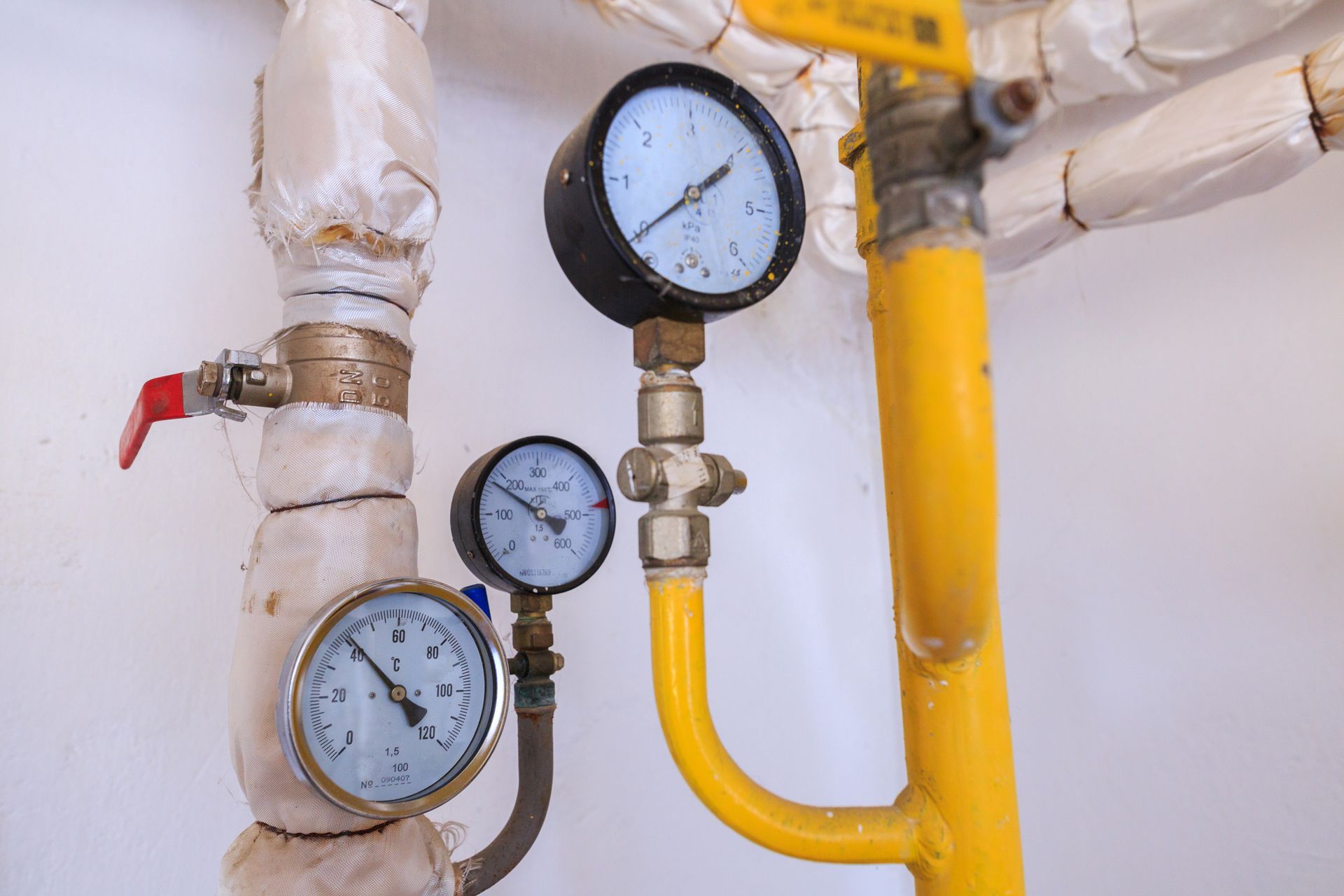
Homes across Virginia face unique challenges. Soil moisture and temperature shifts accelerate corrosion, especially in older neighborhoods. Many mid-century homes still use outdated black iron piping that lacks modern protective coatings.
Local building codes require replacement materials that resist corrosion and meet updated safety standards. Licensed contractors like NOVA Gas ensure compliance with these requirements.
Cost Factors to Expect When Replacing Gas Lines
While costs vary based on property size, pipe length, and installation method, several factors influence the total:
- Type of pipe material used.
- Accessibility of the gas line.
- Depth of underground installation.
- Code updates or permit requirements.
- Labor complexity and local conditions.
Replacing before failure avoids larger expenses from property damage or emergency response. NOVA Gas offers upfront estimates so homeowners understand the scope and timing.
Steps to Take If You Suspect a Leak or Damage

- Evacuate the property immediately.
- Do not use electrical switches or phones inside.
- Call your gas utility or 911 from a safe location.
- Wait for clearance from emergency responders.
- Schedule a professional inspection with NOVA Gas.
- Review inspection results and plan replacement if advised.
After Replacement: Maintenance and Safety Tips

Once your new line is installed, regular upkeep is key:
- Schedule annual inspections.
- Keep vegetation trimmed near lines.
- Avoid driving or heavy digging near buried pipes.
- Check appliance connections twice a year.
- Install carbon monoxide detectors indoors.
Routine maintenance reduces risks and extends your system’s lifespan. NOVA Gas provides ongoing service plans for Virginia homeowners who want continuous safety assurance.
Common Questions About Gas Line Replacement
How often should I have my gas line inspected?
Every few years, or immediately if you notice corrosion, odor, or performance changes.
Can I repair a small section of a gas line instead of replacing everything?
Yes, if the issue is isolated and the rest of the line is structurally sound. A professional inspection determines this.
How long does replacement take?
A straightforward residential replacement typically takes one to two days depending on line length and accessibility.
Is replacement covered by insurance?
Policies differ. Damage caused by wear may not be covered, but sudden leaks could be. Always confirm with your insurer.
What materials last the longest?
Modern polyethylene and coated steel pipes are highly durable and resistant to corrosion.
How do I know my gas line is safe after replacement?
A licensed professional will pressure test and certify your new installation. Keep documentation for records and future inspections.
Future of Gas Line Safety and Replacement Practices

Technology continues to improve gas line safety. Leak detection sensors, corrosion-resistant materials, and trenchless methods are becoming industry standards. NOVA Gas stays updated on evolving practices to ensure compliance and longevity in Virginia homes.
Protect Your Home with NOVA Gas

Replacing a gas line before failure protects your property and your family. Recognizing corrosion, odors, or poor appliance performance early helps prevent emergencies. Schedule a professional inspection with NOVA Gas today to ensure your gas system meets safety standards and performs efficiently for years to come.


